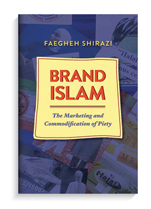Zionists in Interwar Czechoslovakia: Minority Nationalism and the Politics of Belonging
Indiana University Press, March 2016
By Tatjana Lichtenstein, assistant professor,
Department of History
This book offers a new perspective on minority nationalism in Eastern Europe between the world wars. The book investigates the projects that Zionist activists undertook to create the social, cultural, and political foundations for Jewish national life in Czechoslovakia. I argue that, contrary to popular perceptions, Zionism functioned not as an exit strategy, but as Jews’ ticket of admission to European society.
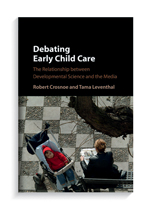
Debating Early Child Care: The Relationship Between Developmental Science and the Media
Cambridge University Press, March 2016
By Robert Crosnoe, chair and professor, Department of Sociology; and Tama Leventhal
Each side in today’s child care debate claims to have the best interests of children at heart. Developmental scientists have concrete evidence to inform this debate, but their message often gets lost or muddied in the media. This book explores media coverage of child care research, what happens to science in the public sphere, and how children’s issues can be used to question parental choices.
The Cambridge Companion to Latina/o American Literature
Cambridge University Press, March 2016
Edited by John Morán González, associate professor, Department of English
This book takes an innovative approach to understanding Latina/o literature not simply as an ethnic phenomenon in the United States, but more broadly as a crucial element of a trans-American literary imagination. Leading scholars present critical analyses of key texts, authors, themes and contexts from the early 19th century to the present.
How Armies Respond to Revolutions and Why
Princeton University Press, March 2016
By Zoltan Barany, professor, Department of Government
This new book argues that it is possible to make a highly educated guess — and even a confident prediction — about an army’s response to a domestic revolt if we know enough about the army, the state it serves, the society in which it exists, and external factors that affect its actions. Case studies in Iran, China, Eastern Europe, Burma and the Arab world reveal the logic behind choices made by soldiers.
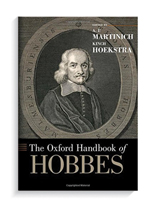
The Oxford Handbook of Hobbes
Oxford University Press, April 2016
Edited by A. P. Martinich, professor,
Departments of Philosophy, Government and History; and Kinch Hoekstra
Twenty-six original articles cover English philosopher Thomas Hobbes’ philosophy of logic and language; his view of physics and scientific method; his ethics, political philosophy and philosophy of law; and his views of religion, history and literature. Several of the articles overlap in ways that help the reader understand him from a variety of perspectives.
The Cambridge History of Religions in Latin America
Cambridge University Press, April 2016
Edited by Virginia Garrard-Burnett, University of Texas at Austin; Paul Freston, Balsillie School of International Affairs; Stephen C. Dove, Centre College
This book covers religious history in Latin America from pre-Conquest times until the present. This book investigates the historical and contemporary centrality of religion in Latin America, the rapid process of religious change the region is undergoing, and the region’s religious distinctiveness in global comparative terms, which contributes to its importance for debates over religion, globalization, and modernity. Reflecting recent currents of scholarship, this volume addresses the breadth of Latin American religion, including religions of the African diaspora, indigenous spiritual expressions, non-Christian traditions, new religious movements, alternative spiritualties, and secularizing tendencies.
The Human Rights State: Justice Within and Beyond Sovereign Nations
University of Pennsylvania Press, April 2016
By Benjamin Gregg, associate professor, Department of Government
Proposing a metaphorical human rights state that operates within or alongside a nation state, Gregg describes activist networks that encourage local political and legal systems to enforce human rights. Geographic boundaries and national sovereignties would remain intact but diminished to the extent necessary to extend human rights to all persons, without reservation, across national borders.
Le livre des écorchés: Proust, Céline et la Grande Guerre
CNRS Éditions, April 2016
By Hervé G. Picherit, assistant professor, Department of French and Italian
Picherit offers a parallel reading of the works of Marcel Proust and Louis-Ferdinand Céline as an epic, composite account of the Great War’s catastrophic nature. It is in answer to this social catastrophe that Proust and Céline each reimagined fundamental notions such as the self, the world, fiction and the sacred and proposed to their readers the basis for a new “way of being in the world.”
The Birth of Theater from the Spirit of Philosophy: Nietzsche and the Modern Drama
Northwestern University Press, May 2016
By David Kornhaber, assistant professor, Department of English
Friedrich Nietzsche’s love of the theater was among the most profound and prolonged intellectual engagements of his life, yet his transformational role in the history of the modern stage has yet to be explored. This account demonstrates how Nietzsche reimagined the theatrical event as a site of philosophical invention that was at once ancestor, antagonist and handmaiden to philosophy itself, laying the groundwork for a bold new direction in modern theater.
The Politics of Dependency: U.S. Reliance on Mexican Oil and Farm Labor
University of Texas Press, June 2016
By Martha Menchaca, professor, Department of Anthropology
The United States and Mexico trade many commodities, the most important being indispensable sources of cheap, reliable energy — crude oil and agricultural labor. Mexico’s economic dependence on the U.S. is well known, but The Politics of Dependency makes a compelling case that the U.S. is also economically dependent on Mexico.
The Given: Experience and its Content
Oxford University Press, June 2016
By Michelle Montague, associate professor,
Department of Philosophy
This is a book about the given—about what is given to us in conscious experience. One of the main goals of a theory of our mental life, a theory of what is given in experience, is to provide a general theory of mental content. The mental content of an experience is absolutely everything that is given to one, experientially in the having of an experience. The author discusses conscious perception, conscious thought and conscious emotion.
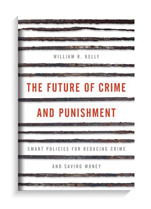
The Future of Crime and Punishment: Smart Policies for Reducing Crime and Saving Money
Rowman & Littlefield, July 2016
By William R. Kelly, professor,
Department of Sociology
This book explores why American criminal justice policy has been a failure, but more importantly where we need to go to effectively reduce recidivism and save money. Criminal offenses commonly involve mental illness, substance abuse, neurodevelopmental impairments and intellectual deficiencies. Kelly discusses a variety of procedural, organizational, statutory, fiscal and cultural changes necessary to implement meaningful criminal justice reform.

Alzheimer’s Turning Point: A Vascular Approach to Clinical Prevention
Springer International Publishing, July 2016
By Jack C. de la Torre, professor,
Department of Psychology
This book provides an overview of the technology for early detection and therapeutic management of vascular factors to Alzheimer’s before cognitive impairment symptoms appear and offers a fresh clinical perspective of this Alzeimer’s. It brings the reader from the trackless clinical research that has characterized Alzheimer’s progress for the last 20 years to a nexus of new ideas that can change our outlook of dementia. In-depth examinations of hypotheses, preventive measures, current and prospective treatments are explored. The author discusses in an easily understood language his proposal of the vascular hypothesis of Alzheimer’s disease.
City of Gods: Religious Freedom, Immigration, and Pluralism in Flushing
Fordham University Press, July 2016
By R. Scott Hanson, lecturer UPenn
Plan II and English Honors alum (1992)
Known as the birthplace of American religious freedom, Flushing, Queens, in New York City is now so diverse and densely populated that it became a microcosm of world religions. This book explores the history of Flushing from the colonial period to the aftermath of September 11, 2001, spanning the origins of Vlissingen and early struggles between Quakers, Dutch authorities, Anglicans, African Americans, Catholics, and Jews to the consolidation of New York City in 1898, two World’s Fairs and postwar commemorations of Flushing’s heritage, the Immigration Act of 1965 and the arrival of Hindus, Sikhs, Muslims, Buddhists, and Asian and Latino Christians.
Writing the Nigeria-Biafra War
James Currey/Boydell & Brewer, July 2016
Edited by Toyin Falola and Ogechukwu Ezekwem, Department of History
The Nigeria-Biafra War lasted from 6 July 1966 to 15 January 1970, during which the post-colonial Nigerian state fought to bring the South-Eastern region, which had seceded as the State or Republic of Biafra, back into the newly independent but ideologically divided nation. This book discusses the trends and methodologies in the civil war writings, both fictional and non-fictional, and is the first to analyze in detail the intellectual and historical circumstances that helped to shape these often contentious texts.
Antinegritude: O Impossível Sujeito Negro na Formação Social Brasileira [Antiblackness: The Impossible Black Subject in The Brazilian Social Formation]
Fino Traço & Editora da Universidadde Federal do Recôncavo da Bahia, July 2016
Edited by Joao H. Costa Vargas and Osmundo Pinho (UFRB), Department of Anthropology
The authors (based Brazil and the U.S.) consider how gendered antiblackness manifests in cultural practices and in the interplay between civil society and the state. Drawing on ethnography, cultural critique and theoretical work, the authors engage propositions about and evidence of the impossibility of a Black subject in the imperial-state Brazilian multiracial project. The essays interrogate hegemonic tropes of gender and sexuality, antiblackness in public education and popular culture, black motherhood, and social movements in the transnational struggle against black genocide.
Brand Islam: The Marketing and Commodification of Piety
University of Texas Press, Aug. 2016
By Faegheh Shirazi, professor,
Department of Middle Eastern Studies
From food products to fashions and cosmetics to toys, a wide variety of commodities today are marketed as “halal” (permitted, lawful) or “Islamic” to Muslim consumers both in the West and in Muslim-majority nations. However, many of these products are not necessarily created to honor religious practice or sentiment and instead are profit-driven, exploiting the rise of a new Islamic economic paradigm, “Brand Islam,” as a clever marketing tool.
German Modernities from Wilhelm to Weimar: A Contest of Futures
Bloomsbury Publishing, Aug. 2016
By co-editors: Tracie Matysik, associate professor, Department of History;
Geoff Eley, and Jennifer L. Jenkins
What was German modernity? What did the years between 1880 and 1930 mean for Germany’s navigation through a period of global capitalism, imperial expansion, and technological transformation? Attentive to Germany’s eventual turn towards National Socialism, this volume brings together leading historians to explore the social, intellectual, political, and imperial projects pursued by those living in Germany in this period who were yet uncertain about what they were creating and which future would come.


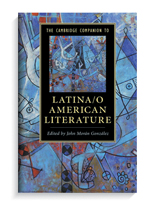
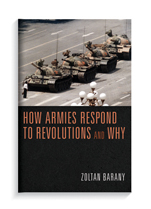
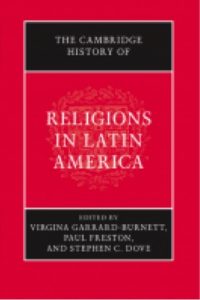
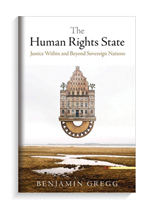
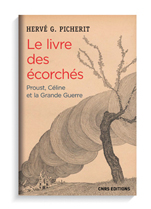
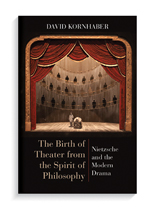
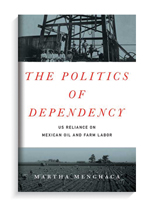
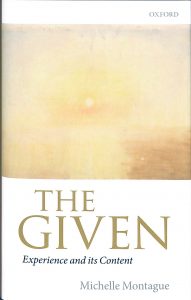
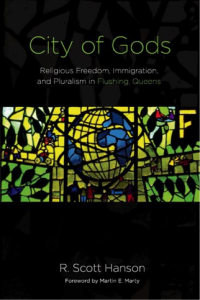
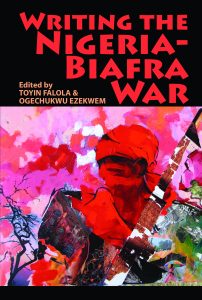
![Book cover for Antinegritude: O Impossível Sujeito Negro na Formação Social Brasileira [Antiblackness: The Impossible Black Subject in The Brazilian Social Formation].](https://lifeandletters.la.utexas.edu/wp-content/uploads/2016/08/vargas-209x300.png)
